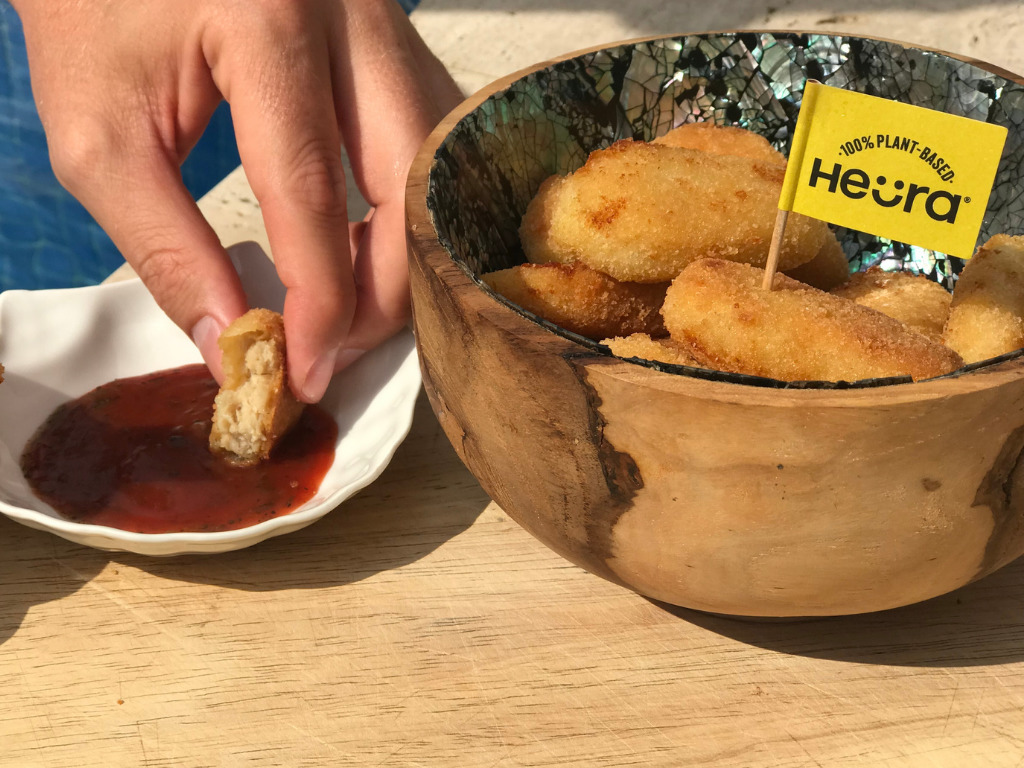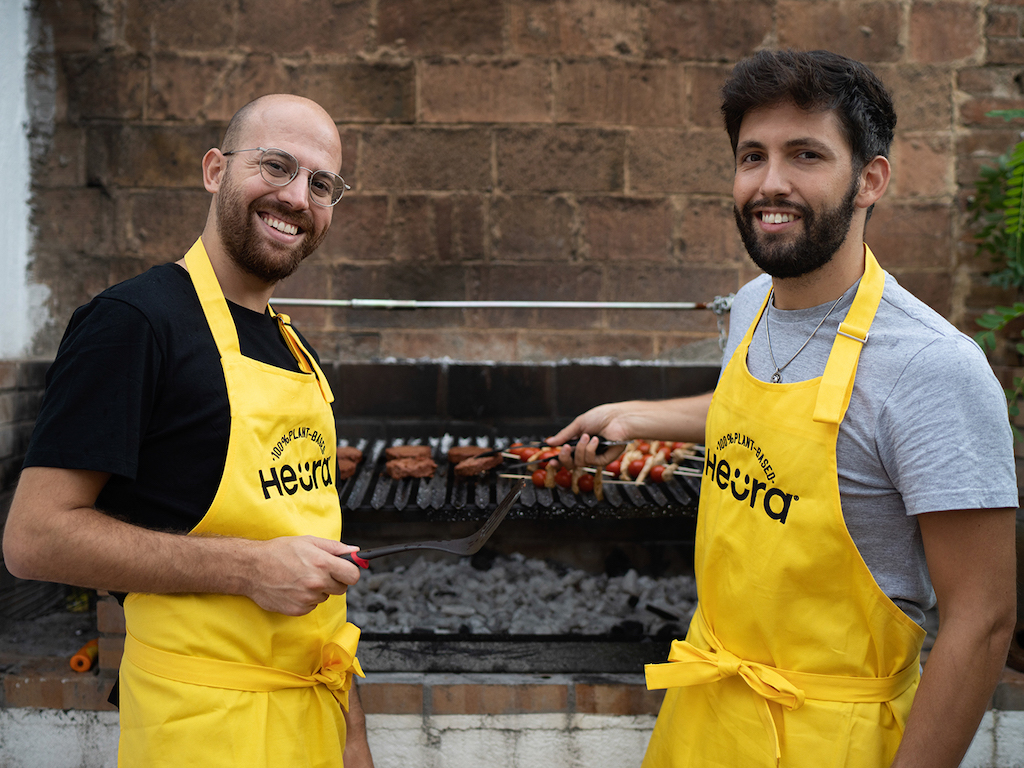4 Mins Read
Barcelona, Spain-based alt-meat company Heura has added two more items to its product roster, both fully vegan takes on traditional pork-based dishes. The company developed its plant-based Heura Sausage and Heura Chorizo with the help of acclaimed Spanish chef Prabhu Sukh.
Up to now, Heura has been known primarily for its vegan chicken alternatives as well as its “beef” burgers, which have become so popular the company tripled its turnover in 2020 due to a huge uptick in demand. Underscoring that popularity, the company closed a successful crowdfunding campaign this past June that raised €4 million (US$4.8 million) in just 24 hours. Just weeks later, Heura announced a €16 million (US$19 million) fundraise and its intentions to expand its product roster to include plant-based pork products.

Clean-label meats
The company claims its new Sausage and Chorizo products contain less fat and saturated fat than their traditional meat equivalents, and less than other plant-based analogues on the market. This is in keeping with previous claims made by Heura co-founder Marc Coloma, who in the past has said his company’s products “have a clean label” and “are among the healthiest available.”
Most importantly for Heura, no animals are slaughtered in the process of making the new pork products, a point Heura made much of when it chose to unveil its new wares at a former bullfighting colosseum in Barcelona.
Reinventing the arena
The Plaza de Toros Monumental de Barcelona, known simply as La Monumental, was the last commercial bullfighting ring in use in Spain’s Catalonia region. No bullfights have taken place in it since 2011, and the space is primarily now used for concerts and sporting events. Bullfighting was banned in 2010 by the Parliament of Catalonia for ethical reasons, and as a sport it is now only legal in a handful of countries worldwide.
Heura used the venue to make a statement about societal shifts away from harmful, ethically sticky practices, and to draw parallels between bullfighting’s history and that of traditional meat:
“A cycle of injustice can be obliterated once people refuse to follow the status quo and start standing up for what they believe in,” Coloma said in a statement. “Society found a way to transform La Monumental from a place of barbaric animal abuse to an amazing platform for an evolved form of entertainment. As the tides shift and the plant-based protein movement continues to make animal-based meats more and more obsolete, Heura recognizes that the power sits with the people, and we ask the world to make their voices heard.”

“An inevitable shift”
All that said, traditional meat is far from obsolete right now, despite the forward movement of the plant-based sector. Worldwide, we’re on track to eat more meat in 2021 than ever before, with the United Nations Food and Agriculture Organization estimates that global meat consumption will rise by more than 1% this year. By some estimates, greenhouse gases from traditional meat production are double those from plant-based foods.
Large, symbolic gestures like that of Heura won’t eradicate the traditional meat market on their own, but they’re a necessary part of raising more awareness about the ethical and environmental costs of so much animal-based meat.
Other companies, including Beyond Meat, Impossible Foods, and a growing number of other players have released sausage analogues. Plant-based chorizo is less widespread, though Chile’s Pow! Foods has a version and US restaurant chain Chipotle just released one.
Heura said in a press release today that its “ultimate” goal with the new product launches at La Monumental is “to celebrate the traditions and heritage that help make Heura who it is, while making sure to constantly ask how we can improve them. Just like Catalunya has renewed its bullfighting tradition at La Monumental, the plant-based meat tradition is an inevitable shift that is mandatory to the evolution of society.”
Lead image courtesy of Heura.




